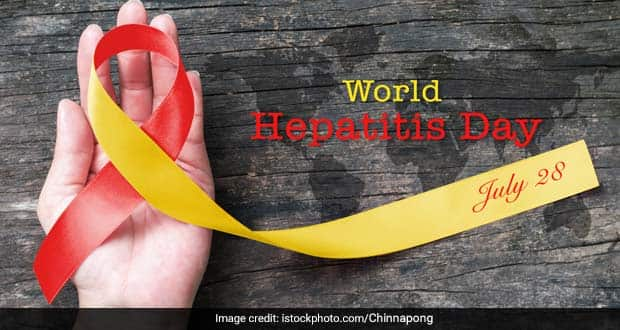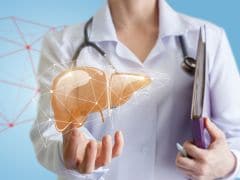According to WHO, around 354 million individuals are affected by hepatitis B or C globally.

Hepatitis refers to the inflammation of the liver caused by hepatitis viruses
Hepatitis refers to the inflammation of the liver caused by hepatitis viruses A, B, C, D, and E. Despite sharing the same outcome of liver disease, these strains differ significantly in their modes of transmission, disease severity, geographical prevalence, and preventive measures. Globally, an estimated 354 million individuals are affected by hepatitis B or C, with many lacking accesses to testing and treatment. Hepatitis poses a significant social and economic burden on India, with over 40 million people infected with hepatitis B and 6 to 12 million people chronically infected with hepatitis C.
1. Hepatitis A:
- Hepatitis A leads to liver inflammation with a range of severity, from mild to severe illness.
- Transmission of the hepatitis A virus (HAV) occurs through contaminated food, water, or direct contact with an infectious person.
- A safe and effective vaccine is available to prevent hepatitis A.
2. Hepatitis B:
- Hepatitis B is a viral infection that affects the liver, leading to both acute and chronic diseases.
- The virus is commonly transmitted from mother to child during childbirth or through contact with infected blood or body fluids during sexual intercourse, unsafe injections, or exposure to contaminated instruments.
- Effective and safe vaccines are available for hepatitis B prevention.
3. Hepatitis C:
- It leads to inflammation of the liver caused by the hepatitis C virus.
- The virus results in causing both acute and chronic hepatitis, which ranges in severity from a mild illness to a serious, lifelong illness and could also cause liver cirrhosis and cancer.
- Since it is a blood-borne virus therefore most infection occur through exposure to blood from unsafe practices such unsafe health care, unscreened blood transfusions, unsafe injection drug use and practices and sexual practices that could lead to exposure to blood.
- Treatment for hepatitis C include antiviral medicines which can cure more than 95% of the people suffering from hepatitis C infection, however access to diagnosis and treatment remains low for this condition
- Currently, there is no effective vaccine against hepatitis C.
4. Hepatitis D:
- The hepatitis D virus (HDV) requires the presence of the hepatitis B virus (HBV) for replication.
- HDV infection occurs through co-infection, where both hepatitis B and D are acquired simultaneously, or through super-infection, where hepatitis D follows a previous hepatitis B infection
- The combination of HDV and HBV infection is considered the most severe form of chronic viral hepatitis, leading to rapid progression toward liver-related death and hepatocellular carcinoma.
- Hepatitis B immunization can prevent hepatitis D infection, although treatment success rates for HDV are low.
5. Hepatitis E:
- Hepatitis E is caused by the hepatitis E virus (HEV) and results in liver inflammation.
- The virus is transmitted via the fecal-oral route, primarily through contaminated water.
- According to WHO, a vaccine to prevent hepatitis E virus infection has been developed and licensed in China, but its availability elsewhere is limited.
Diagnosis
To diagnosis hepatitis, a doctor will assess the patient's symptoms, study their medical history and conduct a physical examination of the liver to test for swelling. Blood tests are taken to check enzymes levels in the liver, as well as to determine the type of hepatitis. A liver ultrasound and biopsy might be conducted to check for inflammation and liver damage.
(Dr. Neeraj Saraf, Senior Director - Hepatology, Institute of Liver Transplantation and Regenerative Medicine, Medanta, Gurugram)
Disclaimer: The opinions expressed within this article are the personal opinions of the author. NDTV is not responsible for the accuracy, completeness, suitability, or validity of any information in this article. All information is provided on an as-is basis. The information, facts, or opinions appearing in the article do not reflect the views of NDTV and NDTV does not assume any responsibility or liability for the same.
DoctorNDTV is the one stop site for all your health needs providing the most credible health information, health news and tips with expert advice on healthy living, diet plans, informative videos etc. You can get the most relevant and accurate info you need about health problems like diabetes, cancer, pregnancy, HIV and AIDS, weight loss and many other lifestyle diseases. We have a panel of over 350 experts who help us develop content by giving their valuable inputs and bringing to us the latest in the world of healthcare.














